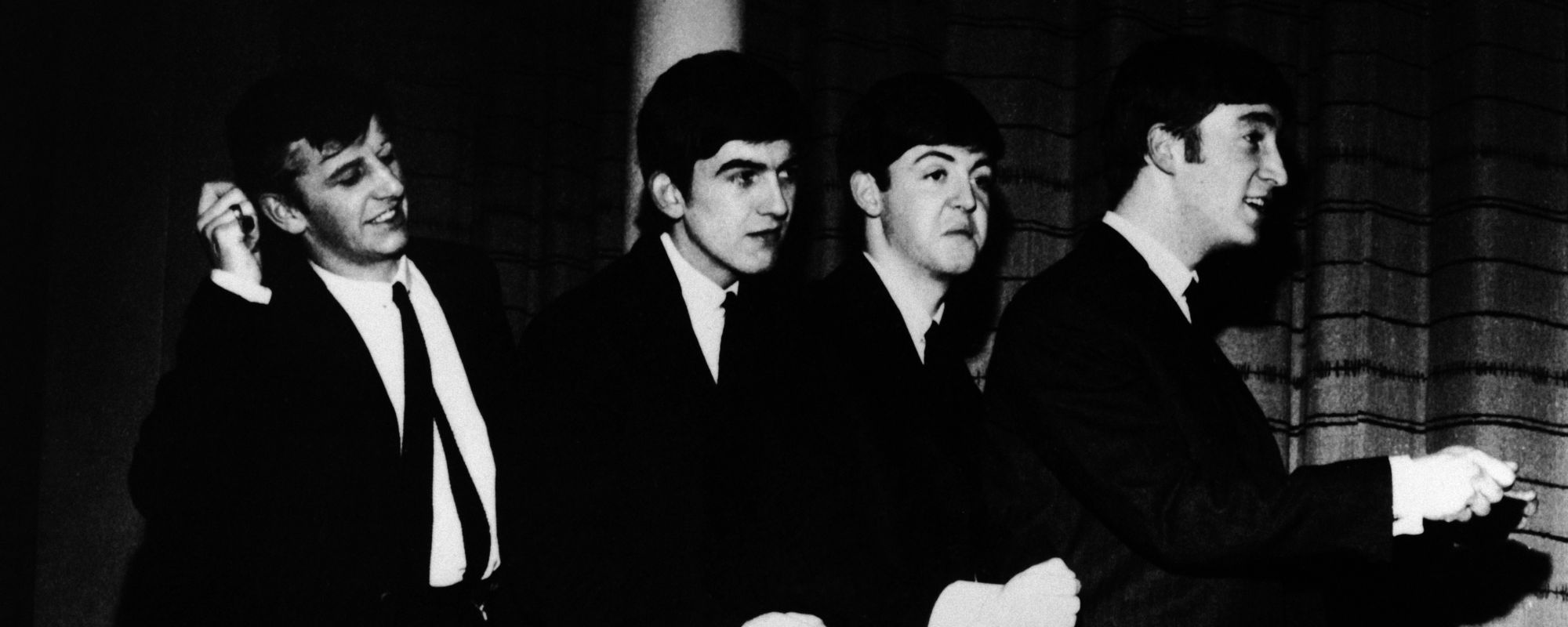When John Lennon embarked on his infamous “lost weekend,” a term referring to his brief separation from Yoko Ono and his relationship with his assistant, May Pang, he likely expected plenty of boozing, partying, traveling, and other typical rock star activities. What might have come as more of a surprise was when a raucous gang in Chinatown stormed his car while he was out on the town with Pang and Rolling Stones saxophonist Bobby Keys.
Videos by American Songwriter
Most shockingly, the gang didn’t storm the car because they were adoring fans scrambling for a chance to see the former Beatle in the flesh. The gang was storming the car out of anger, and Lennon’s reaction likely did nothing to cool their fiery tempers.
Why A Chinatown Gang Chased John Lennon On Lost Weekend
Although John Lennon referred to his separation from his second wife, Yoko Ono, as a “lost weekend,” this period of time in the musician’s life lasted closer to a year and a half from late 1973 through 1974. During this time, Ono had recommended their assistant, May Pang, spend time with Lennon, which budded into a relationship that surpassed Ono’s expectations, much to the artist’s chagrin. Nevertheless, Pang recalls her time with Lennon fondly, even when the situations they found themselves in got uncomfortably tense.
Pang spoke to Asiance Magazine in 2003, describing a night she went to Chinatown in New York City with Lennon, his friend, Rolling Stones saxophonist Bobby Keys, and Keys’ date. While they walked down the street, a local gang took notice. “I heard one of them yell to me in Taishanese, ‘What, you’re going out with a white person?’ All of a sudden, these gangs started running toward the cat. Thank god us girls were sitting in the middle, because the gang members opened the door on Bobby’s side.”
Lennon opted to flip off the angry Chinatown residents. Keys shouted at them until they closed the door. The taxi driver did his due diligence and sped away from the scene, removing his passengers from the dicey interaction. “The gang member was so shocked that a white guy stood up to a Chinese man on his turf,” Pang recalled (via Far Out Magazine). “He was standing there, dumb-founded. It was pretty amazing. John was so amazed that this stuff was happening.” And indeed, the experience was a far cry from the type of treatment Lennon was accustomed to as a massive rock star.
A Rock Star Turned Real-Life Human
The exchange seemed to reaffirm the purpose of John Lennon’s “lost weekend.” Slipping under the radar of his notoriety, he was free to imbibe, act up, and interact with the world in a closer, more personal way—for better or worse, as that Chinatown gang would later demonstrate. After all, Lennon was no stranger to people having incredibly visceral emotional reactions to his presence. But the angry gang didn’t care—if they even knew—that Lennon was who he was. They only cared that they spotted a Chinese woman out on a date with a white man in their neighborhood.
The group’s close encounter with an angry mob was one of many unique experiences May Pang had in her short-lived relationship with Lennon. In that time, she came to know him as more sensitive than the public realized. “I don’t think the public saw the vulnerability in him,” she told Absolute Elsewhere in the early 2000s. “I think they saw a strength in him through his music. He always protected himself. He always felt that somebody wanted something from him, [and] he constantly had his guard up because of that.”
“People forget that John was a human being,” she said. “But it’s great because his music will live on. And we will always hear his voice. We will hear his music, and it’s played over and over and over. And it never gets old.”
Photo by Art Zelin/Getty Images












Leave a Reply
Only members can comment. Become a member. Already a member? Log in.